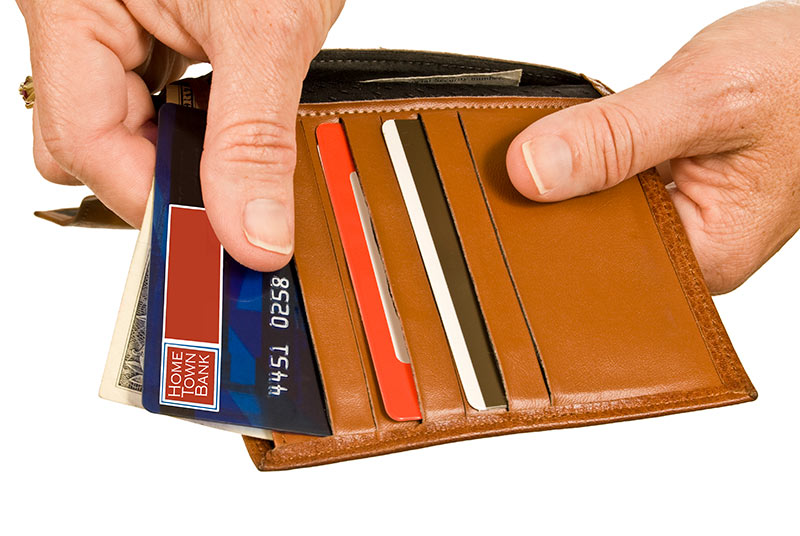Identity theft is real and on the rise, but there are things you can do to protect yourself against your identity being compromised and stolen. Identity theft occurs when someone uses your personal data to pretend to be you primarily for financial gain. Information like your name, Social Security number, and birthdate are the kinds of personal data that can be taken and then used. Impersonators may use the information to empty your bank and investment accounts. Or they may use it to open new credit lines in your name, steal your tax refund, gain access to medical treatments, and even give police your name and address when they are arrested.
Scammers take every opportunity they can, including the COVID-19 crisis, to infiltrate your data. Additionally, companies experiencing data breaches may expose you to thieves just waiting to get your personal information.
It can take years to correct an identity theft. This all sounds scary, but the good news is that there are steps you can take to prevent thieves from stealing your data and ruining your financial life. Here are nine actions you can take to help protect yourself against identity theft by making it more difficult for the identity thieves.
#1: Secure Your Social Security Number (SSN)
Never carry your SSN card in your wallet. Your social security number is the gateway to your personal data and you need to be vigilant in guarding it. When you are asked for your SSN, ask why it is needed and how the requestor will protect it. Be sure the card is securely stored and always shred any paperwork that contains the number.
#2: Use a Shredder
You should shred any records that may have credit information like charge receipts, offers for credit, expired credit cards, insurance forms, medical statements, checks and bank account statements. Shredding prevents dumpster divers from getting your personal information.
#3: Secure Your Personal Records at Home and Work
Be sure that your personal information is safely secured, especially if you have people inside your home like outside help or roommates. These are things you can do to make you information more secure:
- Lock up sensitive material like financial papers, credit cards, and personal information.
- Verify that your personnel records at work are maintained securely and sensitive records are shredded when disposed.
- Always deposit outgoing mail at the post office or in a post office collection box. Do not leave mail in an unsecured bin or mailbox. Collect incoming mail promptly. Pick up new checks at the bank instead of having them mailed. Place a hold on your mail when you are away for several days.
#4: Protect Your Personal Information Online
Don’t put personal information on a computer home page or social media website. Never provide personal or financial information unless a website is secure. The way you can tell if a website is secure is to look for a security symbol such as an unbroken padlock and a URL that starts with “https” instead of “http.” Always right-click the padlock to be certain that it is up to date.
#5: Use Strong Passwords and Add Authentication
Create complex passwords that identity thieves can’t guess. Avoid using obvious passwords like sequential numbers, your mother’s name, your children’s names, or pets. Consider using a password manager to create and store complex passwords. Don’t reuse passwords. Adding an authenticator app can reduce your risk as well. Change your passwords if a company you do business with has a security breach.
#6: Freeze Your Credit Files
When you freeze your credit, it prevents someone from applying for and getting approval for a credit account or utility services in your name. You can freeze your credit files with Equifax, Experian, Innovis, TransUnion, and the National Consumer Telecommunications and Utilities Exchange for free. Then, you can unfreeze when you want to open an account.
#7: Check Your Credit Reports Regularly
It is a good idea to review your credit reports at least annually. Check to be certain that they don’t include accounts that you have not opened. The three major credit reporting bureaus (Equifax, Experian, and TransUnion) are giving consumers access to a free credit report weekly through April 2021. Check to be sure that any accounts that are in forbearance or deferment are being reported correctly and watch for indications of fraud. You can also order credit reports from Annualcreditreport.com.
#8: Protect Your Computer and Mobile Devices
Follow these steps to protect your identity as it is stored on your computer:
- Use a firewall and secure browser.
- Don’t download files from strangers.
- Password-protect any personal or financial information.
- Avoid automatic log-in processes that store your account name and password.
- Maintain virus protection.
- When disposing a computer, delete personal information and completely overwrite the hard drive.
For mobile devices:
- Use passwords on your electronic devices.
- Routinely lock your mobile devices.
- Use a banking app rather than a mobile browser for banking.
#9: Use a Digital Wallet
Use a digital wallet when paying online or in a store. This is an app that contains secure, digital versions of credit and debit cards whereby transactions are tokenized and encrypted, making them safer. In addition, transactions that are contact free have fewer health risks.
Have you Been Charged with Identity Theft?
Identity theft can carry significant charges. Our criminal defense attorneys have the experience to defend all types of identity theft. We represent clients in Wake County including Raleigh, Cary, Apex, Garner, and surrounding communities. Call us at 919-239-8448 or fill out a contact form for a free consultation.



